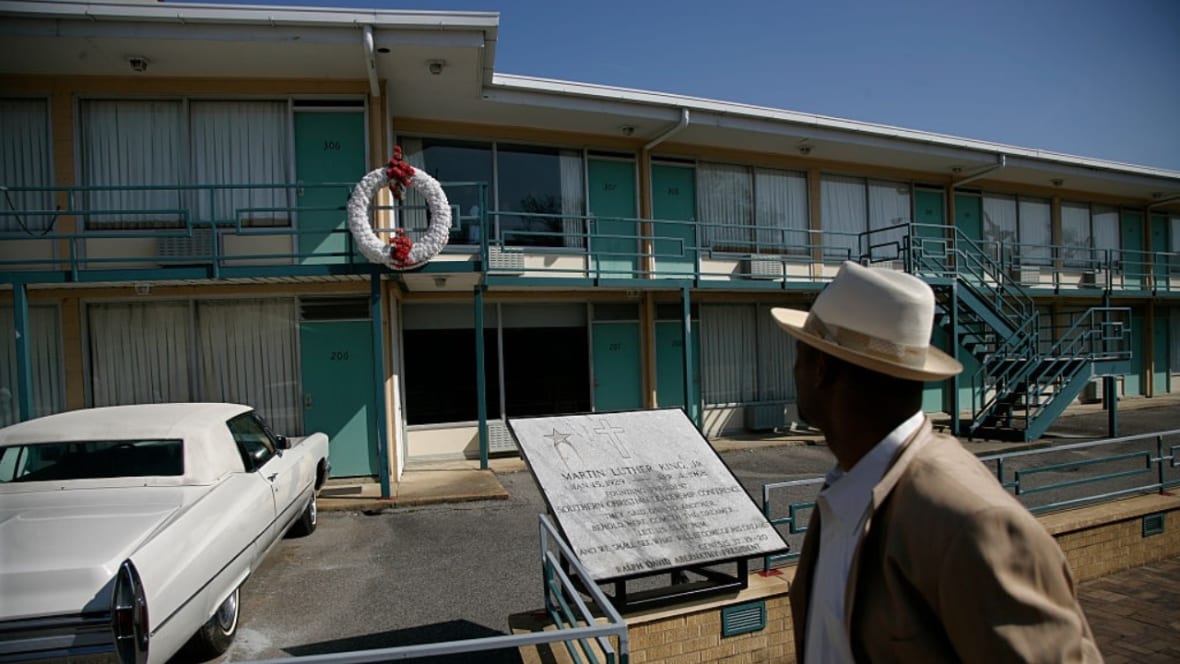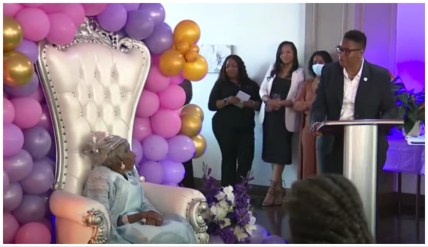Memphis: A tale of two cities
Fifty-five years after Martin Luther King Jr.'s assassination, community members in Memphis say that local leadership has failed to commit to the things Dr. King fought and died for there.
When Dr. Martin Luther King Jr. was assassinated in Memphis 55 years ago, he was there to fight for the economic empowerment of Black people. Today, the Black population in the city is still poor. The metrics show that poverty, the wealth gap and all the economic issues Dr. King targeted remained stagnant for decades.
“The numbers on their face say that not much has changed since he was assassinated,” says the Rev. Earle Fisher, a community leader in Memphis. “What we’ve seen is a decline in population and an increase in impoverished communities.”
In 1970, two years after King was killed and the first year the U.S. Census Bureau started collecting poverty data, 42 percent of Black people in Shelby County, where Memphis is located, lived below the poverty line. Since then, the poverty rate for Black people in the county has hovered around 30 percent. Memphis has a population of 628,127 and is 64 percent Black.

One of King’s last organizing efforts was the Poor People’s Campaign in 1968. The goal was to address the economic disadvantages that many Black communities faced. He called for financial investment in American cities.
“The time has come for us to civilize ourselves by the total, direct and immediate abolition of poverty,” King wrote in his final book, “Where Do We Go from Here: Chaos or Community.”
He was in Memphis on that fateful 1968 day to support Black sanitation workers on strike. They were in the midst of a fight for better wages and fair treatment. The march was scheduled for April 8. On April 4, King was shot and killed at the Lorraine Motel, and the Civil Rights Movement took a devastating blow.
Decades later, community members in Memphis say its local leadership has failed to commit to the things Dr. King fought and died for in the city.
Miles Stewart, a Memphis resident who has lived there for over 60 years, says the city had some periods in which economic improvements were made, but they were never sustained.
“I think there was a point where you saw more Black homeowners and small businesses but things took a turn,” Stewart contends, referring to issues such as redlining, the crack epidemic and mass incarceration.
The economic gaps in the city are wide. In 2021, the poverty rate for Black people in Memphis was 26.5 percent, according to U.S. Census data. It was 10.3 percent for whites in the city. The median household income for Memphis’ Black residents is $41,543, which is more than $40,000 less than that of its white residents.
Black children in the city live in severe poverty. A study of U.S. Census data by the University of Memphis shows that the child poverty rate in Memphis is just under 40 percent for Black kids and less than 10 percent for white kids. While more than 80 percent of Black students finish high school, less than 20 percent get a bachelor’s degree. White students graduate from high school at a 90 percent rate and graduate from college at a 43 percent rate.
Some community leaders say Memphis has done a good job of “appearing” to be more diverse while not actually having a diverse philosophy.
“Visually and aesthetically, it looks more inclusive. It looks like Black people have more stake in things,” Fisher says. “The reality is that those in the system found a way to provide tokenism and symbolism without actually doing anything.”
A prime example of this is that the Memphis Police Department has a Black chief, but, according to residents, officers in the department continue to have a reputation for discriminating against Black people. They claim the death of Tyre Nichols this year at the hands of five Black officers represents everything that’s wrong with the city’s police department.
The Memphis Mayor’s Office and the City Council did not respond to a request for comment.
Meanwhile, something that might be more helpful to Black residents is the city properly investing in their schools. In 2012, Memphis gave up control of its schools to Shelby County. As a result, the city does not allocate any money toward the public school system. The funds for Memphis schools come from the county, even though the city has the option to still put money toward its campuses.
“Memphis is not in the business of public education,” Fisher says. “You wonder if that would be the case if the city was predominantly white.”
TheGrio is now on your TV via Apple TV, Amazon Fire, Roku, and Android TV. Also, please download theGrio mobile apps today!



